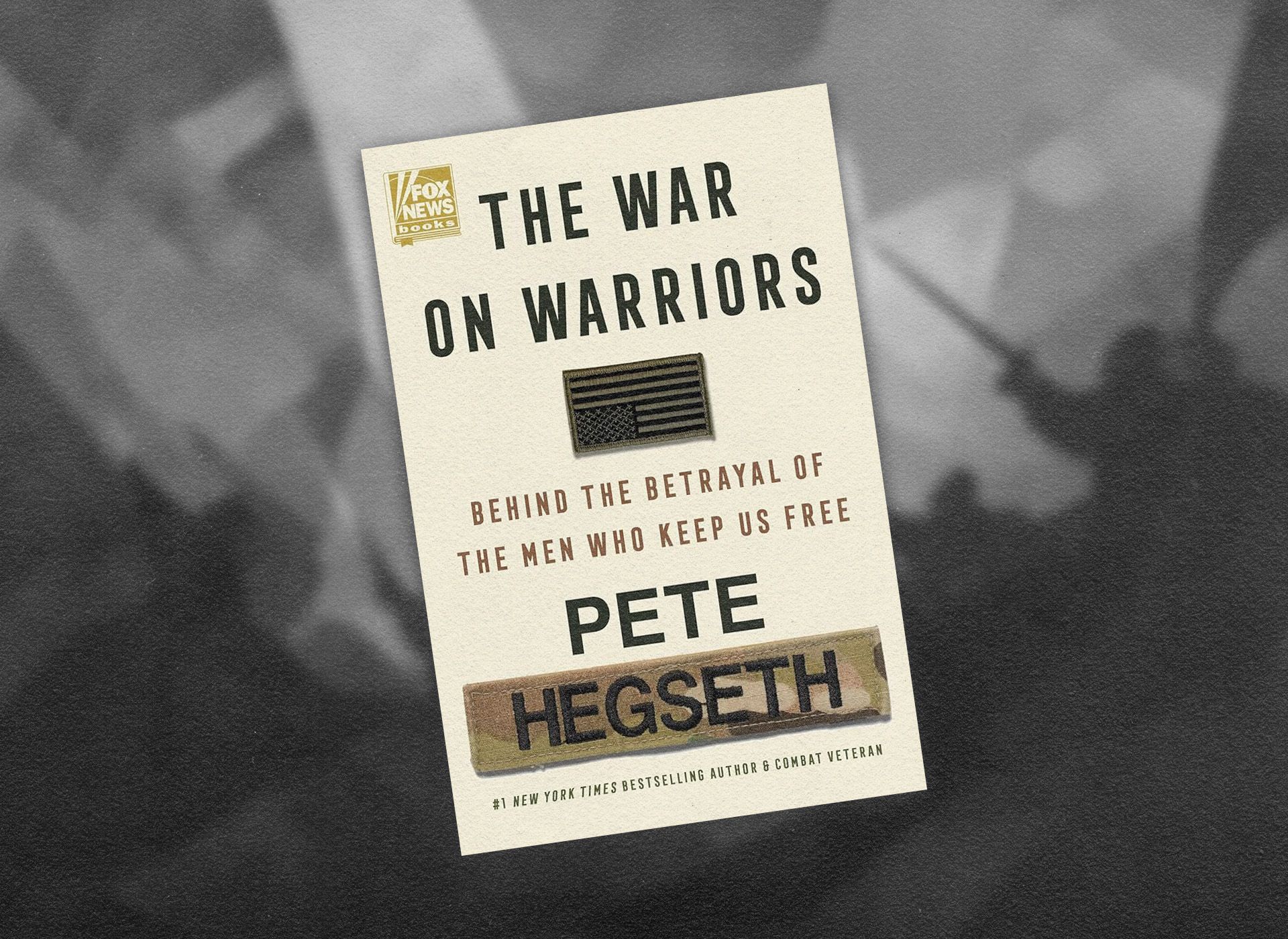
Book Review: The War on Warriors by Pete Hegseth
A month ago, Americans who aren’t dedicated Fox Nation subscribers had likely never heard of Middle Tennessee resident Pete Hegseth. But, once Donald Trump announced him as his pick for Secretary of Defense, a smear campaign not seen since the pinnacle of the Brett Kavanaugh confirmation days set in. For those not paying attention, the Harvard and Princeton grad with longtime stints as a bestselling author and weekend Fox & Friends host is an utterly unqualified, twice-divorced serial cheater with a penchant for sexual assault; a tattooed white supremacist; and a functioning alcoholic whose extremism led the Army and Guard to relieve him of duty after more than two decades of service.
Though such allegations are, at best, thinly sourced and, at worst, spurious, they would be enough to make most of us fold. But as Hegseth’s June 2024 book, The War on Warriors, indicates he’s not most people. Like his potential boss, he’s a guy who will “fight like hell” no matter how many times The Drudge Report says his career is on the brink.
Those wondering why Trump would nominate a brash veteran with a commanding cable news presence over the customary four-star general to lead the Pentagon need look no further than The War on Warriors’s central thesis: a bloated government has created a “General class” with no regard for the truth that is more concerned with serving ideological politicians, legacy media elitism, and the defense contractors offering lucrative post-military jobs than the G.I.s they are supposed to command. “The military I joined in 2001 is not the military of today. But unlike schools, unlike churches, and unlike different states, we can’t just replace one we don’t like with one better,” Hegseth writes.
Referring to the military as “the last bastion of meritocracy in America,” Hegseth makes the case that changes to defense protocol over the last two decades from Obama’s repeal of ‘Don’t Ask, Don’t Tell’ and Bush’s influx of JAG legalese to Biden’s whole hog replacement of boards that govern military academies in favor of DEI and CRT adherents have made the military ill-equipped for combat, a situation that may not only deter new recruits but lead to an uptick of fatalities on and off the battlefield.
Of particular concern to Hegseth is the military’s Biden Era revisions to rules concerning transgender soldiers and women in combat roles. Hegseth’s opposition stems not from misogyny and transphobia but from his fundamental belief that adherence to military, not amorphous social standards, is essential to the entire purpose of soldiering. The military denies cadets prescribed allergy medicine and civilian eyewear during training so that even the greenest recruits can function in environments where such items aren’t available. Consequently, its culture cannot feasibly accommodate those undergoing hormone therapy that requires intense medication regimens without sacrificing the safety of the men and women under oath to defend the nation.
Likewise, Hegseth cites numerous studies in which combat units integrated by gender have failed to meet expectations, a reality the military has tried to gloss over by lowering its physical standards. “America is unique, in part, because we’re free enough to tolerate misfits, but we won’t stay that way if we make ‘misfit’ the only acceptable identity,” he writes.
While those kept up at night by a Hegseth-led Pentagon have depicted him as an unhinged wildcard, The War on Warriors offers a detailed plan for the reforms he would bring to his new position: prohibit military leadership from working for defense contractors for ten years, reinstall uniform military standards, prune back bureaucracy, update military ethical codes for an era in which our enemies don’t give a rip about war crimes, create a more rigorous process to reach the rank of general, and publicly terminate any leadership more concerned about careerism and social capital than the well-being and proper training of those under their command.
Hegseth’s book may not fully outline his planned agenda, but it does establish its author as an exceptionally competent military veteran who understands the plight of the contemporary soldier and the global threats the nation faces.“If we are going to send our boys to fight–and it should be boys–we need to unleash them to win. They need them to be the most ruthless. The most uncompromising. The most overwhelmingly lethal they can be. We must break our enemy’s will” he writes. As Hegseth often admits in The War on Warriors, he and the military have never been perfect, but he’s ready and willing to answer the call however he can–regardless of the prestige his next gig garners.
